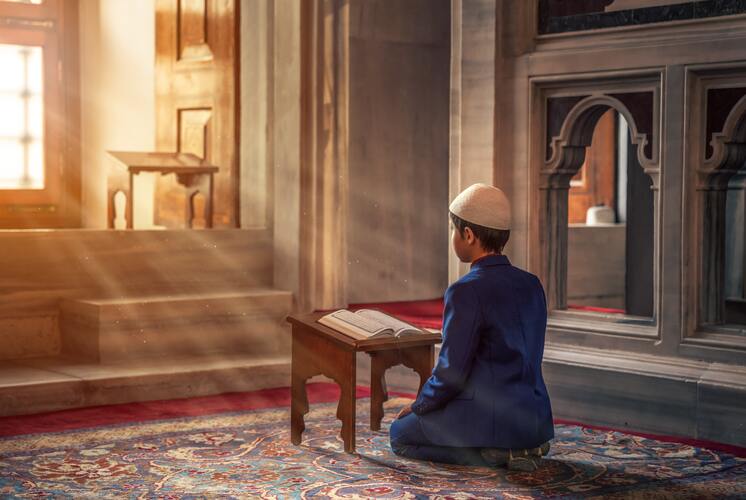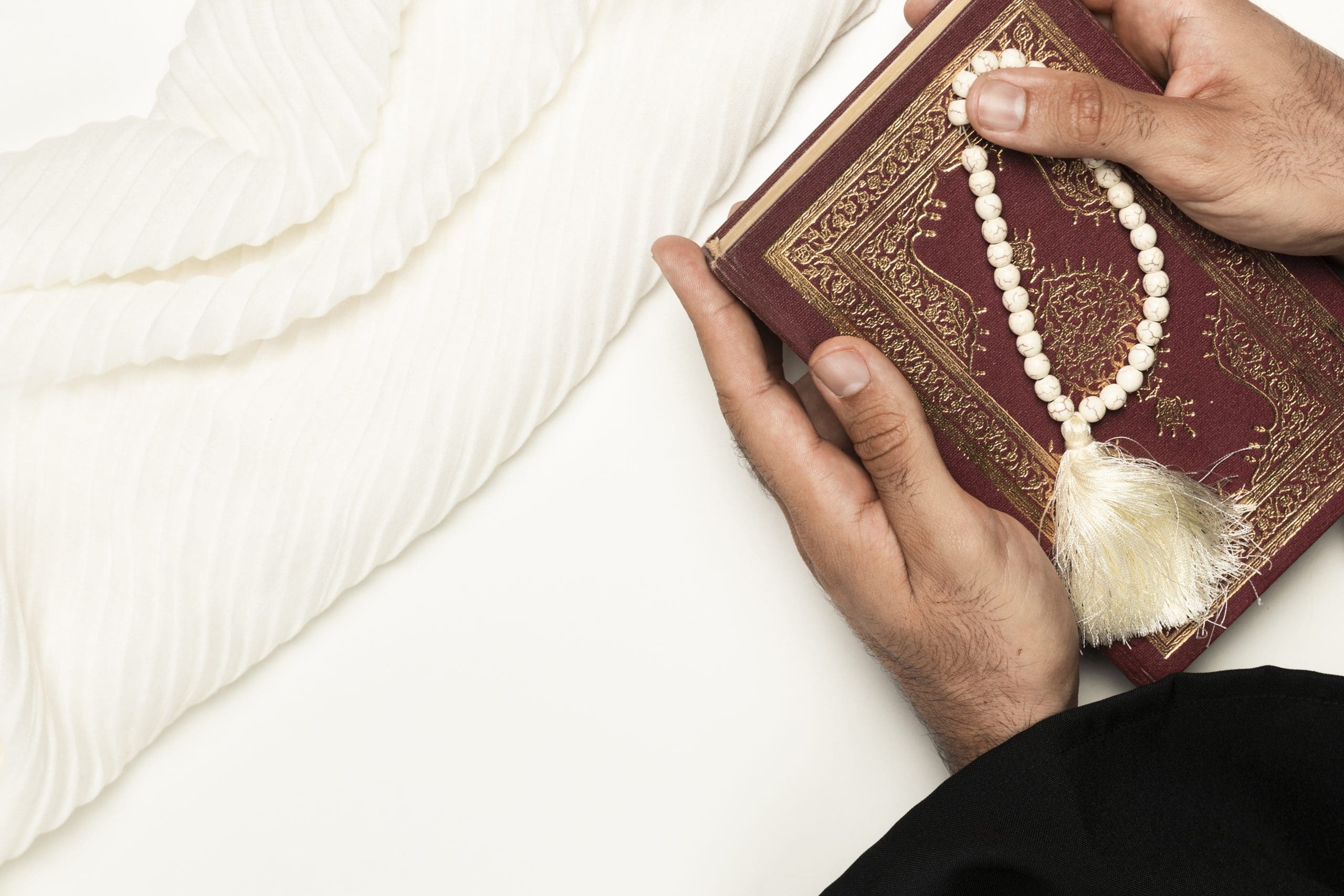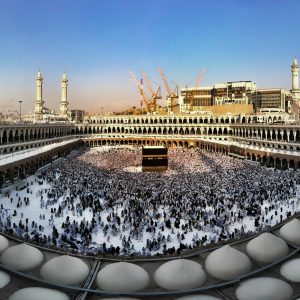info@learnmuslim.com
info@learnmuslim.com



Salah, the second pillar of Islam, is a central act of worship that defines the daily rhythm of a Muslim’s life. It is a practice that connects believers with their Creator and instills a profound sense of spiritual discipline and mindfulness. Performed five times a day, Salah is not just a ritualistic exercise but a powerful reminder of the presence of Allah in every moment of life.
The Significance of Salah
Salah, derived from the Arabic word for connection, signifies the deep bond between a Muslim and Allah. It is an act of devotion and humility, wherein a believer acknowledges the greatness of God and their own dependence on Him. Salah serves as a constant reminder of the purpose of life, which is to worship and obey Allah, and to lead a life of righteousness and virtue.
Each of the five daily prayers—Fajr (pre-dawn), Dhuhr (midday), Asr (afternoon), Maghrib (sunset), and Isha (night)—is a moment of pause from the worldly engagements to focus solely on the spiritual. Through Salah, Muslims reaffirm their faith, seek forgiveness for their shortcomings, and ask for guidance and strength to navigate the challenges of life.
The Structure and Components of Salah
Salah is composed of a series of physical postures and recitations that are performed in a precise order. Each unit of Salah, known as a Rak’ah, includes the following key components:
Takbir (Opening): The prayer begins with the Takbir, a declaration of Allah’s greatness, as the worshiper raises their hands and says “Allahu Akbar” (God is the Greatest).
Qiyam (Standing): The worshiper stands and recites verses from the Qur’an, including the opening chapter, Surah Al-Fatiha, followed by another chosen passage.
Ruku’ (Bowing): The individual then bows, placing their hands on their knees and expressing reverence for Allah by saying “Subhana Rabbiyal Azeem” (Glory be to my Lord, the Most Great).
Sujud (Prostration): Following the bowing, the worshiper prostrates, touching their forehead, nose, palms, knees, and toes to the ground in a gesture of complete submission to Allah, while saying “Subhana Rabbiyal A’la” (Glory be to my Lord, the Most High).
Tashahhud (Sitting): After a brief sitting posture, the worshiper repeats the prostration and concludes the Rak’ah. This process is repeated multiple times depending on the prayer being performed.
Tasleem (Salutation): The prayer concludes with the Tasleem, where the worshiper turns their head to the right and then to the left, saying “Assalamu Alaikum wa Rahmatullah” (Peace and mercy of Allah be upon you), greeting the angels and those around.
The Spiritual Benefits of Salah
Salah offers numerous spiritual and psychological benefits, acting as a cornerstone for a balanced and harmonious life. It serves as a daily reminder of a Muslim’s purpose and ultimate return to Allah, encouraging introspection and spiritual growth. The regular rhythm of prayer cultivates discipline, patience, and a sense of order, helping believers manage their time and responsibilities more effectively.
Through Salah, Muslims develop a sense of humility and gratitude, acknowledging their dependence on Allah and the blessings they receive. The practice of turning to Allah in prayer fosters a deep sense of peace and contentment, reducing stress and anxiety by placing trust in a higher power.
Salah also strengthens the sense of community among Muslims. The act of praying together, especially in congregational prayers at the mosque, reinforces the bonds of brotherhood and unity within the Muslim Ummah. It is a shared expression of faith that transcends individual differences and unites believers in their devotion to Allah.
Salah in Daily Life
Incorporating Salah into daily life is both a spiritual discipline and a practical guide for time management and self-reflection. By structuring the day around the five prayer times, Muslims create regular opportunities for spiritual renewal and connection with Allah. This practice helps believers maintain focus on their faith amidst the distractions and challenges of daily life.
Salah also serves as a moral compass, guiding Muslims in their interactions and decisions. The values emphasized in prayer—such as honesty, compassion, and humility—extend beyond the prayer mat and influence how Muslims conduct themselves in their personal and professional lives.
Conclusion
Salah is the spiritual heartbeat of a Muslim’s life, a practice that goes beyond mere ritual to encompass a profound connection with Allah and a framework for ethical living. It is a source of strength, guidance, and peace, helping believers navigate the complexities of life with faith and resilience. Through Salah, Muslims experience the presence of Allah in their daily lives, nurturing a sense of purpose and fulfillment that transcends the material world.
In a world where distractions and stress are ever-present, Salah offers a sanctuary of peace and a path to spiritual enlightenment. It is a timeless practice that continues to inspire and uplift millions of Muslims around the globe, guiding them on their journey towards a life of devotion, integrity, and harmony.

Fasting, known as Sawm in Arabic, is the fourth pillar of Islam and is observed annually during the holy month of Ramadan. It is a practice that transcends mere abstention from food and drink, serving as a profound act of worship and self-discipline that transforms the body, mind, and soul. Through fasting, Muslims embark on a journey of spiritual renewal, deepening their connection with Allah and fostering a sense of empathy and solidarity with those less fortunate.
The Significance of Fasting in Islam
Fasting during Ramadan is a reflection of obedience and devotion to Allah, as well as an opportunity for spiritual growth and introspection. The Qur’an describes Ramadan as the month in which the Qur’an was revealed, providing guidance for humanity. Observing the fast is a means to attain Taqwa, or piety and consciousness of God, aligning one’s actions with the divine will.
The fast of Ramadan is more than just physical abstinence; it is a comprehensive act of worship that encompasses the entire being. From dawn until sunset, Muslims refrain from eating, drinking, smoking, and engaging in marital relations. This period of abstention serves as a reminder of the blessings of Allah and encourages a heightened sense of gratitude and self-control.
The Practice of Fasting: Physical and Spiritual Aspects
1. Physical Abstention:
Suhoor (Pre-Dawn Meal): Muslims begin their fast with Suhoor, a pre-dawn meal that provides the necessary sustenance for the day ahead. This meal is a vital component of the fast, offering energy and hydration to sustain the body through the day’s abstention.
Iftar (Breaking the Fast): The fast is broken at sunset with Iftar, a meal that often begins with the eating of dates and drinking of water, followed by a more substantial meal. Iftar is a time of communal gathering, where family and friends come together to share in the blessings of breaking the fast.
2. Spiritual Reflection:
Increased Worship: During Ramadan, Muslims intensify their worship and devotion. This includes additional prayers such as Taraweeh, reciting the Qur’an, and engaging in acts of charity. The night of Laylat al-Qadr, believed to fall within the last ten days of Ramadan, holds special significance as a time of profound prayer and reflection, as it commemorates the night the Qur’an was revealed to Prophet Muhammad.
Repentance and Forgiveness: Ramadan is a time for seeking forgiveness and making amends. Muslims reflect on their actions, seek to rectify their mistakes, and ask for Allah’s mercy. It is a time to turn away from sins and embrace a path of righteousness and spiritual renewal.
The Benefits of Fasting
1. Spiritual Purification:
Fasting purifies the soul by cultivating patience, humility, and self-discipline. It encourages Muslims to detach from material desires and focus on their spiritual well-being. By fasting, believers gain a heightened awareness of their own actions and their relationship with Allah, fostering a deeper sense of piety and devotion.
2. Empathy and Compassion:
Fasting instills a sense of empathy for those who experience hunger and deprivation regularly. It encourages Muslims to appreciate the blessings they have and to extend their compassion and support to those in need. This increased sensitivity often leads to acts of charity and kindness, as Muslims strive to help alleviate the suffering of others.
3. Physical Health:
While the primary purpose of fasting is spiritual, it also offers physical benefits. Fasting can help detoxify the body, promote healthy eating habits, and improve metabolic function. The period of abstention from food allows the digestive system to rest and rejuvenate, contributing to overall health and well-being.
4. Social Unity:
Ramadan fosters a sense of community and solidarity among Muslims. The shared experience of fasting and breaking the fast together strengthens the bonds within families and communities. It is a time of unity and togetherness, where Muslims worldwide come together in worship and reflection, transcending cultural and geographical boundaries.
Challenges and Rewards of Fasting
Fasting is a test of endurance and willpower, requiring believers to overcome physical and emotional challenges. The long hours of abstention, particularly in regions with extended daylight during Ramadan, can be physically demanding. However, these challenges are met with a sense of purpose and devotion, as Muslims strive to fulfill their religious obligations and draw closer to Allah.
The rewards of fasting are both immediate and eternal. In the immediate sense, fasting offers a sense of spiritual fulfillment and a renewed perspective on life. It fosters a deep sense of gratitude and contentment, as Muslims reflect on the blessings they have and their reliance on Allah.
In the broader scope, the rewards of fasting extend into the hereafter. Islamic teachings promise great spiritual rewards for those who observe the fast with sincerity and devotion. Fasting is seen as a means of expiation for sins and a way to attain Allah’s mercy and forgiveness, paving the path towards eternal salvation.
Conclusion
Fasting during Ramadan is a powerful and transformative act of worship that encompasses physical, spiritual, and social dimensions. It is a practice that goes beyond abstention to embody the principles of self-discipline, empathy, and devotion to Allah. Through fasting, Muslims embark on a journey of spiritual renewal, deepening their connection with their Creator and reinforcing their commitment to a life of righteousness and compassion.
As we reflect on the significance of fasting, we are reminded of its timeless wisdom and the profound impact it has on our lives. Fasting teaches us the value of patience and gratitude, and it encourages us to live with a greater sense of purpose and responsibility towards others. It is a reminder that true fulfillment and happiness come from serving Allah and contributing to the well-being of our communities.
In observing the fast, Muslims around the world unite in a shared expression of faith and devotion, creating a tapestry of spiritual solidarity that transcends boundaries and enriches the lives of believers. Ramadan is a time of renewal and transformation, a period where the heart and soul are rejuvenated, and the spirit is elevated towards a higher plane of existence.

Zakat, the third pillar of Islam, is a profound expression of faith that embodies the principles of generosity, social justice, and compassion. It is not merely an act of giving, but a vital component of a Muslim’s spiritual and moral duty. By fulfilling the obligation of Zakat, Muslims contribute to the welfare of society and help bridge the gap between the rich and the poor, fostering a sense of community and shared responsibility.
Understanding Zakat
The term “Zakat” means purification and growth in Arabic. In the context of Islam, it refers to the mandatory charitable contribution that Muslims are required to give from their wealth. This act of giving purifies the giver’s wealth and soul, promotes personal growth, and ensures the equitable distribution of resources within the community.
Zakat is typically calculated as 2.5% of a Muslim’s accumulated wealth and assets over the course of a year, provided that it exceeds the nisab, a minimum threshold of wealth. This obligation applies to various forms of wealth, including cash, savings, investments, and business assets, ensuring that the wealthier members of society contribute proportionately to the welfare of those in need.
The Importance of Zakat in Islam
Zakat holds a central place in Islamic teachings, emphasizing the importance of charity and social responsibility. It is mentioned alongside Salah (prayer) in the Qur’an numerous times, highlighting its significance as a fundamental practice for Muslims. The act of giving Zakat serves several key purposes:
Purification of Wealth: By giving a portion of their wealth, Muslims cleanse their remaining assets and affirm that wealth ultimately belongs to Allah. This act of purification underscores the temporary and entrusted nature of material possessions.
Spiritual Growth: Zakat fosters a sense of gratitude and detachment from worldly possessions. It encourages Muslims to view wealth as a means to achieve a higher purpose rather than an end in itself. The practice of giving helps in overcoming greed and developing empathy for the less fortunate.
Social Equity: One of the primary objectives of Zakat is to reduce economic inequality and support the welfare of the underprivileged. By redistributing wealth, Zakat helps alleviate poverty, provides financial stability to those in need, and promotes social harmony.
Community Solidarity: Zakat strengthens the bonds within the Muslim community by fostering a spirit of cooperation and mutual support. It creates a sense of collective responsibility, where each individual contributes to the well-being of others.
Beneficiaries of Zakat
The Qur’an outlines specific categories of people who are eligible to receive Zakat. These include:
The Poor (Al-Fuqara): Those who lack sufficient means to meet their basic needs.
The Needy (Al-Masakin): Individuals who may have some means but still require additional support to sustain themselves.
Zakat Collectors: Those responsible for collecting and distributing Zakat.
New Converts to Islam (Muallaf): Individuals who have recently embraced Islam and may need support in their new faith journey.
Slaves and Captives (Ar-Riqab): People in bondage or captivity, with the aim of freeing them.
Debtors (Al-Gharimin): Those burdened by debts that they cannot repay.
Those in the Path of Allah (Fi Sabilillah): People engaged in activities that promote the welfare of the community and the propagation of Islam.
Wayfarers (Ibn As-Sabil): Travelers in need of assistance to return to their homes.
By addressing the needs of these diverse groups, Zakat plays a crucial role in promoting social welfare and reducing the disparities that can lead to societal discord.
The Impact of Zakat
The practice of Zakat has a far-reaching impact on both the individual giver and the wider community. For the giver, Zakat serves as a reminder of the impermanence of wealth and the importance of using resources for the greater good. It instills a sense of accountability and encourages the development of ethical and responsible financial habits.
For the recipients, Zakat provides critical support that can improve their quality of life and offer opportunities for economic empowerment. It helps meet basic needs such as food, shelter, and healthcare, and can also fund educational initiatives and skills training that enable individuals to achieve self-sufficiency.
On a broader scale, Zakat contributes to the economic stability and development of the community. It acts as a safety net for the most vulnerable members of society, reducing the prevalence of poverty and fostering a more inclusive and equitable economy. The redistribution of wealth through Zakat helps to create a more balanced and just society, where everyone has the opportunity to thrive.
Conclusion
Zakat is a powerful testament to the values of charity, compassion, and social justice that lie at the heart of Islam. It is a practice that transcends the mere act of giving, embodying a deep commitment to the welfare of others and the pursuit of a just and equitable society. Through Zakat, Muslims express their gratitude for the blessings they have received and fulfill their duty to support those in need.
By adhering to the principles of Zakat, Muslims contribute to a cycle of generosity and kindness that enriches their own lives and strengthens the bonds within their communities. It is a reflection of the profound wisdom and ethical guidance of Islam, promoting a spirit of solidarity and mutual care that uplifts both the individual and society as a whole.
As we reflect on the significance of Zakat, we are reminded of the enduring power of compassion and the transformative impact of collective action. In giving, we receive the blessings of personal growth and spiritual fulfillment, and in serving others, we build a world where justice and compassion prevail.

Hajj, the fifth pillar of Islam, is an extraordinary pilgrimage that represents the pinnacle of a Muslim’s spiritual journey. Performed annually during the Islamic month of Dhu al-Hijjah, Hajj is an obligation for every Muslim who is physically and financially able to undertake it at least once in their lifetime. It is a profound act of worship that not only fulfills a religious duty but also fosters a sense of unity, humility, and global Muslim solidarity.
The Spiritual Significance of Hajj
Hajj is more than just a physical journey to the holy city of Mecca; it is a profound spiritual quest that embodies the essence of submission and devotion to Allah. The pilgrimage commemorates the actions of Prophet Ibrahim (Abraham) and his family, who demonstrated unparalleled faith and obedience to God. By retracing their steps and performing the rites of Hajj, pilgrims renew their faith and deepen their connection with the divine.
The Qur’an emphasizes the significance of Hajj, stating: “And proclaim to the people the Hajj; they will come to you on foot and on every lean camel; they will come from every distant pass” (Qur’an 22:27). This verse highlights the universal nature of Hajj, calling Muslims from all corners of the globe to gather in a shared expression of faith and devotion.
The Rites and Rituals of Hajj
Hajj consists of a series of sacred rites that are performed over several days, each carrying deep spiritual and historical significance. These rituals are designed to purify the soul, foster humility, and remind pilgrims of their ultimate submission to Allah.
1. Ihram: The State of Spiritual Purity
The journey of Hajj begins with entering the state of Ihram, a sacred condition that involves wearing simple white garments. For men, this consists of two unsewn cloths, while women wear modest, plain clothing. The Ihram symbolizes purity, equality, and the renunciation of worldly distractions. It signifies the pilgrim’s intention to perform Hajj solely for the sake of Allah, free from material concerns.
2. Tawaf: Circumambulation of the Kaaba
Upon arrival in Mecca, pilgrims perform Tawaf, the act of circumambulating the Kaaba, Islam’s most sacred site, seven times in a counterclockwise direction. This ritual symbolizes the unity of Muslims worshiping one God and reflects the idea of humanity revolving around a single divine center. Pilgrims also perform Sa’i, walking seven times between the hills of Safa and Marwah, in commemoration of Hagar’s search for water for her son, Ismail.
3. Arafat: The Pinnacle of Hajj
The Day of Arafat is the climax of Hajj, where pilgrims gather on the plains of Arafat to stand in prayer and reflection from noon until sunset. This ritual, known as Wuquf, is a time of deep repentance and supplication, as it is believed to be the moment when Allah’s mercy and forgiveness are at their peak. The Prophet Muhammad emphasized the importance of Arafat, stating, “Hajj is Arafat,” signifying that this day is the essence of the pilgrimage.
4. Muzdalifah: The Night Under the Stars
After sunset on the Day of Arafat, pilgrims travel to Muzdalifah, where they spend the night under the open sky. Here, they collect pebbles for the next day’s ritual and engage in prayer and reflection. The simplicity of this night, spent in nature without any shelter, reminds pilgrims of the equality and humility that are central to the Hajj experience.
5. Rami al-Jamarat: The Stoning of the Devil
In Mina, pilgrims perform Rami al-Jamarat, the symbolic stoning of three pillars representing the devil. This act commemorates Ibrahim’s rejection of Satan’s temptations and reaffirms the pilgrim’s commitment to resisting evil. The stoning ritual involves throwing seven pebbles at each pillar, signifying the rejection of sin and the affirmation of faith.
6. Eid al-Adha: The Festival of Sacrifice
Hajj concludes with the celebration of Eid al-Adha, the Festival of Sacrifice. Pilgrims and Muslims worldwide commemorate Ibrahim’s willingness to sacrifice his son in obedience to Allah’s command. As a symbolic act of this sacrifice, pilgrims perform Qurbani, the slaughtering of an animal, with the meat distributed to the needy. This act of charity highlights the importance of sharing blessings and supporting those less fortunate.
7. Tawaf al-Ifadah: Final Circumambulation
Before leaving Mecca, pilgrims perform Tawaf al-Ifadah, another circumambulation of the Kaaba, symbolizing their farewell to the holy sanctuary and the culmination of their Hajj journey. This final Tawaf reflects the completion of their pilgrimage and their renewed commitment to a life of faith and devotion.
The Impact and Rewards of Hajj
Hajj is a transformative experience that leaves a lasting impact on the lives of pilgrims. The physical and spiritual challenges of the pilgrimage foster a sense of humility, patience, and resilience. Pilgrims return home with a renewed sense of purpose, a deeper connection to their faith, and a greater commitment to living a life of piety and righteousness.
The Qur’an and Hadith highlight the immense spiritual rewards of Hajj. The Prophet Muhammad said, “Whoever performs Hajj for Allah’s pleasure and does not have sexual relations with his wife, and does not do evil or sins then he will return (after Hajj free from all sins) as if he were born anew” (Sahih Bukhari). This underscores the belief that a sincere Hajj purifies the soul and brings one closer to Allah.
Hajj also fosters a profound sense of global Muslim unity. As millions of Muslims from diverse backgrounds gather in Mecca, they are reminded of their shared faith and the bonds that connect them as members of the Ummah. This sense of solidarity transcends cultural, linguistic, and national differences, reinforcing the ideals of brotherhood and equality that are central to Islam.
Conclusion
Hajj is a sacred journey that represents the culmination of a Muslim’s spiritual aspirations and devotion to Allah. It is an act of worship that transcends time and place, connecting pilgrims to the profound legacy of Prophet Ibrahim and the timeless teachings of Islam. Through the rites of Hajj, Muslims renew their faith, seek forgiveness, and affirm their commitment to a life of righteousness and service.
The pilgrimage to Mecca is a testament to the enduring power of faith and the transformative potential of devotion. It is a reminder of the values of humility, patience, and charity that lie at the heart of Islam. As we reflect on the significance of Hajj, we are reminded of the importance of living a life that is aligned with the principles of justice, compassion, and unwavering faith in Allah.
Hajj is not just a journey of miles, but a journey of the soul—a journey that brings Muslims closer to their Creator and strengthens the bonds of unity and brotherhood among the global Muslim community. It is a pilgrimage that embodies the essence of Islam and the enduring spirit of devotion that inspires millions of believers around the world.